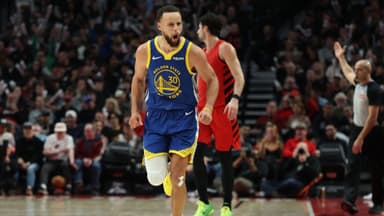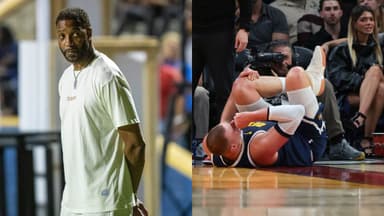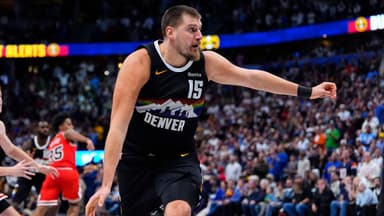To their fans and in the NBA’s lore of the late 2000s, the 2008–09 Denver Nuggets remain one of the most memorable teams. At the peak of his powers, Carmelo Anthony led the Mile-High City squad in his sixth NBA season. Denver finished with a 54–28 record, topped the Northwest Division (back when divisions actually mattered), and earned the second seed in the Western Conference. From there, they powered their way to the Conference Finals. The only shortcoming was their inability to break through to the Finals and win the championship.
Advertisement
They lost in six games to Kobe Bryant’s Los Angeles Lakers, but that Denver team captured national attention and earned the respect of both peers and media pundits. Anthony led the way, averaging 22.8 points, 6.8 rebounds, 3.4 assists, and 1.1 steals per game in the regular season, while shooting 37.1 percent from beyond the arc. He elevated his game in the playoffs, scoring 27.2 points per game and playing with greater intensity on both ends. Even though he struggled from deep in the Conference Finals (25.0 percent), Melo still averaged 27.5 points against the Lakers.
That Nuggets roster also featured key players such as Chauncey Billups, Brazilian big man Nene, sharpshooter J.R. Smith, and defensive anchor Kenyon “K-Mart” Martin. During a recent appearance on The OG podcast, Martin sat down and reflected on that unforgettable season, where he did not hold back on his disdain towards his former head coach, George Karl.
Martin insisted the Nuggets had everything they needed to win a title. The only missing piece? A good leader on the sidelines. “I’mma keep harping on it, people [are] going to get tired of hearing me say it probably, but if we have a different coach we win a championship bro. No doubt about it!” he declared, reviving old tensions with Karl.
Martin and Karl have had a tense relationship for some time. The animosity escalated when Karl released his book Furious George, in which he criticized several former players, including Martin, Anthony, and J.R. Smith. Karl’s most inflammatory claim was that Martin and Anthony “carried two big burdens: all that money and no father to show them how to act like a man.” That deeply personal attack struck a nerve.
Martin, raised by his mother and sister without a father, responded with raw emotion on social media, calling Karl an “AWFUL AND COWARD A** COACH” and later adding, “I am not ashamed to say it. My mother and my sister raised me.”
On the podcast, Martin acknowledged Karl’s basketball knowledge but insisted he lacked the complete skills needed to lead a team to a title. “If we have a different coach who was well-rounded [about] the game and [as a person]. Because it’s not just the game; it can’t be just one part. So, did the man know basketball? Yeah. But it wasn’t in its totality,” he explained.
Martin’s biggest complaint focused on Karl’s in-game decisions. Or rather, the lack thereof. From play design to timeout management, Martin said the team often faced critical moments unprepared.
“In the game situation. So, all the [stuff] you need. If you ain’t got no timeouts or if they take this away, what are we going to do? We never worked [on that]. I played for this man for six and a half years [and] we never worked on it, bro. End the game situations. Like never worked on it, dawg!” he stated.
K-Mart recalled a frustrating example during the Western Conference Finals against the Lakers. Poor play-calling and repetition led to costly turnovers.
“We’re playing the Lakers [in the] Western Conference Finals. We throw the ball away twice because we’re trying to zip a Melo up. We ain’t run no action, just zip him up, and [the Lakers] take it away. We turn the ball over. [Anthony Carter] I don’t mean to throw you under the bus [Anthony Carter] throw the ball away in the first game. I threw it away in the second game. We try to run the same exact the exact same play,” he added.
That said, keeping Karl aside, Martin looks back on his time with the Nuggets fondly. He speaks highly of his teammates and their skills. It was just the leadership that cost them a shot at the title. “[There were] good basketball players. Winners and guys who know this game and have competed. Yes, and like I said, we were as a group handicapped from the decision management made by keeping [George Karl] on.”
The 2009 Denver Nuggets had the talent, toughness, and mentality to win it all. But Martin made it clear they fell short because the one man who should have led them forward failed to do so.








